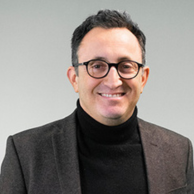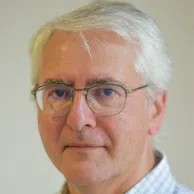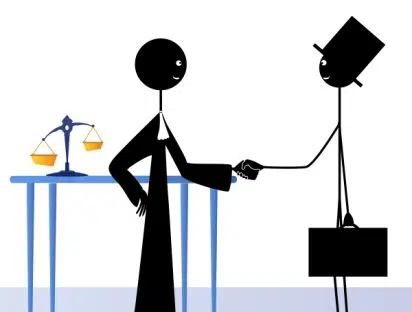
Transitioning from teaching young students to adult learners can be tough for faculty. Here, Vincent Calvez and Stéphane Justeau from ESSCA School of Management explain the unique characteristics displayed by adult learners and propose a method for teaching them based on real-life cases and experimentation.
It can be painful when a teacher transitions from teaching young students to adult learners, especially if they use the same methods or assume that the audiences are identical. The pain will also be felt by adults who don’t understand why they are being treated as younger students. Although they are learners, they may have been employees, or perhaps still are, just as they may have set up a company or taken over their family’s business. As a result, they have a lot to say, share and explain.
Malcolm Knowles and the adult learner
Since the 1970s, pedagogical literature has shown that a 20-year-old learner is not the same as a 45-year-old one. Malcolm Knowles, author of The Adult Learner: A Neglected Species, published in 1973, laid the foundations for the theory of andragogy (the art of helping adults to learn) by emphasising the specific characteristics of the adult learner.
Throughout his career, Knowles devoted himself to adult education and sought to promote teaching and learning methods adapted to the specific needs of adults. He emphasised the autonomy of the adult learner and the meaning given to learning, as well as the integration and sharing of life experiences in the learning process.
The Adult Learner: The Definitive Classic in Adult Education and Human Resource Development, published post-mortem in 1998, remains the definitive reference work on this subject. It has helped many teachers to design relevant and appropriate teaching activities.
When we train teachers to teach adults we often hear: “Adults know what they have to learn and that’s enough”. But because learning is a highly strategic cost-benefit analysis that is often difficult to carry out, adults need to find meaning in what they are doing and in the tasks in which we ask them to participate.
In addition to the course content, which must serve clearly defined learning objectives, there has to be a rigorous explanation of the meaning given to the entire set-up: Why this method?Why this exercise? Why do it now?
Prior learner experience
Throughout their lives, adults have developed self-confidence, self-esteem and their personal identity. Sometimes, however, they may have lost it, or it will have been sorely tested. As a result, adults in training need to feel responsible for their own learning, but they also need to assert that identity, in one way or another. Their path must therefore be signposted, but must also allow for a degree of organisational autonomy. Classroom discussion must be free and respectful, to allow open and frank expression of each individual’s pathway.
By their very nature, adults in training bring a wealth of experience and knowledge accumulated throughout their lives. This must be integrated into the course. Better still, it should be an integral part of the course. Allowing them to express themselves and to share things with the group will not only feed the course content with concrete elements, but will also allow learners to affirm who they are and to recall what they have experienced. In short, they will become part of the course.
Readiness to learn
Adults engage in the act of learning if it’s the right time for them to do so and if the challenge is within their grasp. If they are in the classroom, it’s because the calculated benefits outweigh the costs. They will only take risks in safe, well-marked territory, supervised by activities designed specifically for them and full of meaning.
While young learners are often focused on content, adults are more interested in developing their skills, solving problems, dealing with real-life situations and achieving practical results that can be applied in their working lives.
The theory of motivation at work developed by psychologists Edward Deci and Richard Ryan applies perfectly to learning. While young learners are sensitive to extrinsic motivation in the context of their studies (social and family constraints, etc), their elders are driven more by internal factors, known as “intrinsic motivation”.
This motivation to learn stems from the reasons that led them to return to their studies, sometimes to the detriment of their free time or family life. It’s a perfectly effective motivation for learning because it leads learners to work for themselves rather than for others, to develop their skills rather than focusing on the grade.
Trialling a new method
By integrating these dimensions, we have developed a new method for faculty to teach adults – particularly in the field of human sciences or management. It can be summarised thus: “Writing the unspeakable and the misunderstood to learn and understand better”. Here are the key elements of the method and how adult learners have responded to them in crisis management and leadership courses over a 10-year period.
Crisis management
In this course, the audience was made up of practising and trainee managers from a large public electricity production and distribution company. Before the course, they were asked to write about a crisis situation they had experienced, either as an active participant or as a bystander. During the seminar, the trainees presented their experiences one by one and shared their feelings about the various problems they had encountered.
When a case was described with the solution provided, the vast majority of participants were surprised by the choice made by one of them and a lively discussion ensued. The trainer acted as a moderator, prompting debate with questions for further clarification and then returning to the theoretical reading grid to try to clarify some points.
Leadership course
In this course, the teacher used real cases as much as possible to stimulate discussion. Carefully selected for their potential impact, these cases can get people talking and provoke testimonials that will be remembered throughout their careers.
One such case prompted a trainee team manager to talk about the day she saved the life of a member of her team. She had a premonition and dispatched some firemen to the staff member’s home. They found that she had tried to kill herself; fortunately, they resuscitated her. The class listened attentively and much debate ensued on fundamental notions that went beyond the scope of the course, including responsibility, guilt and sensitivity.
In recent years, adult students on the leadership course have been asked to write their end-of-semester work in the form of a case study, always based on a real-life situation. The testimonies are exceptionally rich and the precision of the details and experiences go hand-in-hand with the originality and even extreme harshness of the situations, hence the term ‘unspeakable’. The reaction of one trainee was particularly memorable: “It hurt (to recount it) but in the end it did me good.”
It’s almost as if writing has a kind of curative dimension: a cure, not just through words, but also through the distancing it can provide. This is especially true when the initial situation was experienced with difficulty, or even as a trauma that was rarely shared. The non-judgmental nature of the exercise enables adult trainees to reveal situations that may have overwhelmed them in the past, but also to come back to them by analysing them and weighing up the experiential knowledge now acquired.
The testimonials and analyses might include the following kind of statement: “I was fooled”. In this way, we ask the learners to relate their experience to the frameworks, concepts or notions that are supposed to shed light on the situation. The experiential learning described in David Kolb’s work, Experiential learning: Experience as the Source of Learning and Development, is underway.
Among the situations dealt with by trainees in recent years was the case of an extremely authoritarian manager who made his teams suffer and broke the bonds of solidarity built up over many years. Another involved the arrival of a director who generated sales growth and built up friendships with colleagues, but turned out to be a manipulator and something of a con man. In a third case, a woman was offered an advantageous career move, provided she joined a team where the manager had a reputation for harassment. She accepted and had to fight to defend her integrity.
Practical tips for teachers
For those who want to adopt this method of teaching, here are some practical pointers. Ask students for examples of situations in their professional life (successes, difficulties, failures, projects, bankruptcies, product launches, innovations and so on) that they have personally experienced or witnessed first-hand.
Tell them not to censor themselves and provide as many details as possible about the personalities of the various people involved, the type of organisational context, how long the company has been in business, or how long those members of staff have been with the organisation, its history, culture, practices, products and services. The more the situation has challenged them, the more it has, at times, put them to the test, the more important it will now be to reinterpret and analyse it.
Clearly, this situation should illustrate the need to develop or strengthen their managerial skills, as well as their ability to question, understand and act. After describing the situation as neutrally as possible in the first part, they will analyse it in the second part.
The need to carry out this analysis in the light of what they have already learned on the course, providing between two and four lines of theoretical questioning (based on concepts, notions and reading grids that may or may not have been covered on the course) will help them to better understand the situation they have experienced. Get them to elaborate on the questions this situation has raised and how they have subsequently dealt with them.
Both in the debates generated by the case studies and in the reading and use in class of the work of adults in training, the teacher is advised to adopt a non-judgmental, even benevolent, neutral stance, so as to value the students’ backgrounds. They also need to be active listeners to lead the debate, while sometimes discovering with them the incredible stories that populate our organisations.
In one example, an adult learner once confided in their teacher about the mission of some hard-hitting consultants who had arrived at his company, a world leader in its sector. “They asked me if I was on the executive committee and when I replied that I was not, they said, ‘That means you’re not a real man’”. At this point, a general burst of laughter shook the class at the rudeness of the consultants, reinforcing the desire to continue sharing experiences.
What seems to emerge from this experimentation is first and foremost the interest shown by the adults in this form of work, which enhances their experience far more than a simple
theoretical examination. The teacher’s interest is also stimulated, as he or she discovers rich situations that can, on occasion, strongly encourage reflection and feed into the lessons.
This exercise can also give rise to writing partnerships in which teacher and student then publish teaching material together for use in subsequent years.
Vincent Calvez holds a PhD from the Ecole Polytechnique and an MSc from HEC-Montreal, where he began teaching in 1993. At ESSCA, he is in charge of management courses and heads the Family Business Institute. His research interests include crisis management, the critical incident and case method, as well as conflicts within family businesses. He has published three books and some 40 case studies.
Stéphane Justeau has a PhD in economics and has been teaching since 2000. He was trained at the University of Lausanne and at the Open University, where he was awarded a Postgraduate Certificate in Academic Practice. Justeau is in charge of ESSCA’s Institute of Advanced Pedagogy where he trains faculty members of ESSCA School of Management, as well as faculty from other universities and schools both in France and abroad. Previously dean of faculty, he is now associate dean for pedagogy.
This article was originally published in AMBA's education business magazine - Ambition, October 2023.





